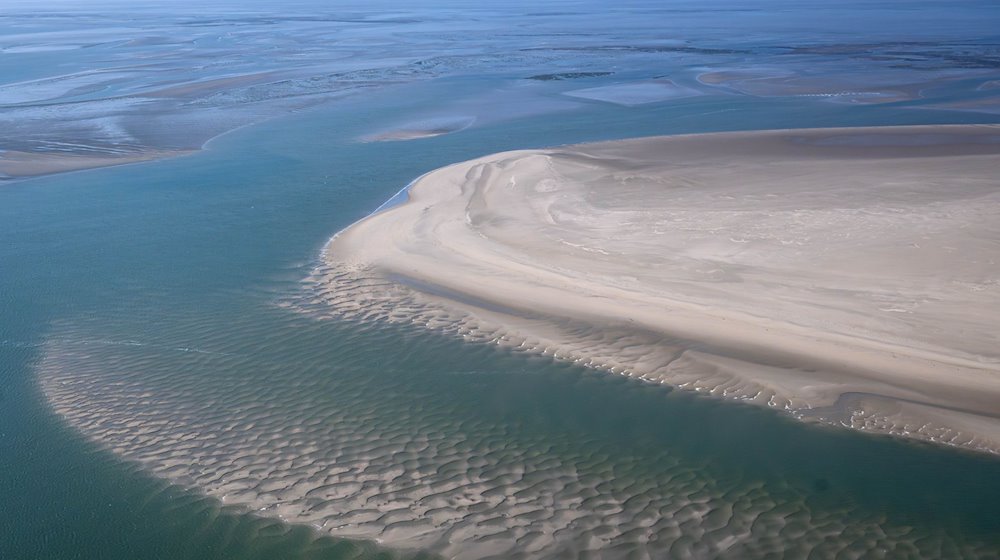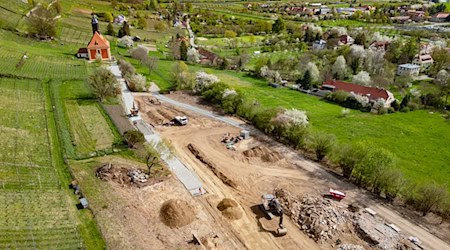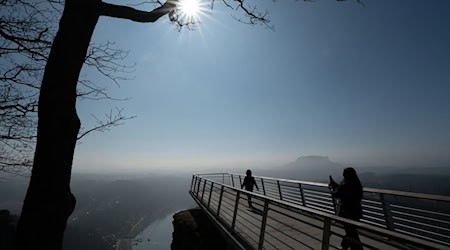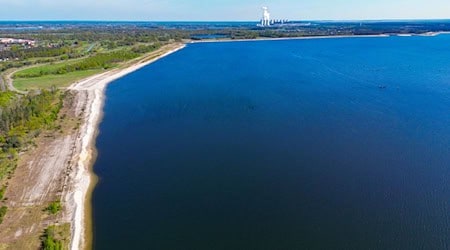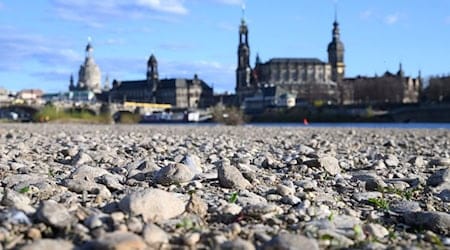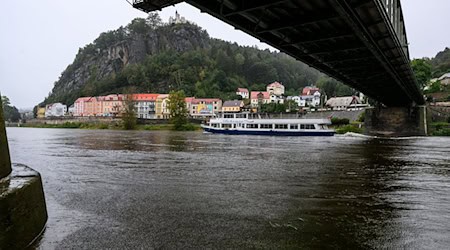The consequences of climate change on land and at sea are increasingly changing the ecosystem in the Wadden Sea UNESCO World Heritage Site at various levels. This is the result of a new quality status report on climate change recently published by the Trilateral Wadden Sea Secretariat in Wilhelmshaven. Changes can be observed in sea levels, temperatures and the occurrence of extreme weather events, said Julia Busch, Climate Change Program Manager at the Wadden Sea Secretariat, to the German Press Agency. "If important elements in this well-established system are missing or shift, this has an impact on the entire system." Added to this is the human use of the Wadden Sea for fishing and tourism, for example.
Researcher: "Unprecedented changes" in the Wadden Sea
Since the publication of the last status report on climate change in the Wadden Sea in 2017, "unprecedented changes" have been observed in the Wadden Sea, the main author of the report, Katja Philippart, a scientist at the Royal Netherlands Institute for Sea Research (NIOZ), is quoted in a statement from the Wadden Sea Secretariat. These included mass mortality of cockles as a result of a heatwave in 2018, a decline in freshwater inflow from rivers into the North Sea and a rise in sea level.
It is urgently necessary to take coordinated measures to combat the effects of climate change on the Wadden Sea. "Finding ways to give the ecosystem more time to adapt to these aspects of climate change will be a major challenge for all those involved in monitoring, research and management of the Wadden Sea," said Philippart.
The environmental organization WWF expressed alarm at the new report. "The report confirms the WWF's fears that climate change is the greatest threat to the Wadden Sea," said Hans-Ulrich Rösner, head of the WWF Wadden Sea office in Husum. Flooded mudflats and the collapse of individual islands as a result of accelerated sea level rise could lead to the destruction of the Wadden Sea in the long term. "Only global climate protection can slow down excessive sea level rise, but climate adaptation measures are also necessary so that the Wadden Sea can rise with the sea level," said Rösner.
Record temperatures in the western Wadden Sea
As a result of global climate change, scientists are also registering temporary increases in air and water temperatures in the North Sea region. The authors of the study point out, for example, that the highest sea water temperature in 160 years was measured in the western Wadden Sea last June at 18.5 degrees.
Some species can adapt well to higher temperatures, others less so, said Busch. "We are already seeing a change in species composition." Scientists have been concerned for some time that the flight and resting times of migratory birds are shifting. The report cites the example of black-tailed godwits, which have to shorten their resting period in the Wadden Sea in order to catch up with the earlier hatching of insects, which serve as a food source, in their breeding area of Siberia as a result of global warming.
The report also refers to a study according to which the lugworm, for example, could also move northwards as a result of climate change and thus decline in abundance.
Rivers transport less freshwater into the Wadden Sea
The Wadden Sea is also feeling the effects of climate change on land, for example through increased consumption of freshwater resources on land, said Busch. "This is a point that has perhaps received little attention so far." One example is changes in salinity. The less freshwater enters the salty Wadden Sea, the higher the salinity remains, said Busch. The water is therefore less diluted.
As spring and summer have recently been drier and warmer on average, rivers such as the Ems, Elbe and Weser have been discharging less freshwater into the Wadden Sea. "This affects the life of algae and therefore also fish and birds in the mudflats," explained Philippart. This is because freshwater contains phosphate and nitrogen, for example, which serve as the basis for algae growth and thus for the food chain.
Heatwave hits cockles
Extreme weather events such as heatwaves are also likely to become a problem for life in the Wadden Sea, the authors of the study write. Philippart refers to the large-scale death of cockles in the Dutch Wadden Sea in the summer of 2018. "In addition to the heat, this probably also had to do with the decline in the supply of freshwater algae as a food source for these mussels."
The new report is part of a collection of reports that reflect the assessment of the ecological status of the Wadden Sea. Other status reports, which are also regularly updated, deal with species and pollution, for example. Scientists from all three countries bordering the Wadden Sea - Germany, Denmark and the Netherlands - worked on the new report on climate change.
Copyright 2024, dpa (www.dpa.de). All rights reserved

